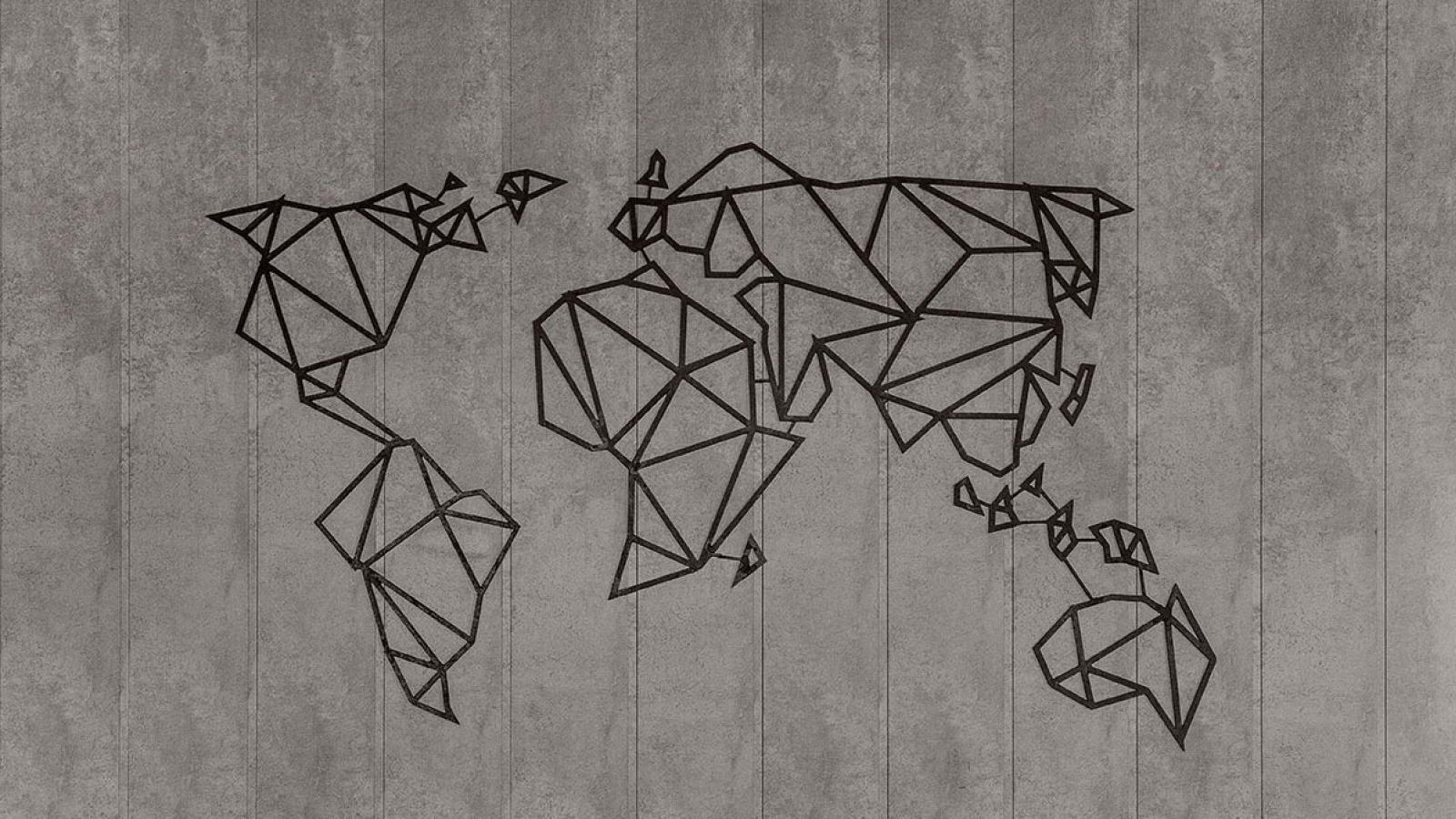Southern discomfort: is there value in the concept of the Global South?
As development thinkers challenge the construct of “the South”, our research explores its layered origins and argues that it can play a constructive role in understanding and addressing global power asymmetries.

Movements such as Black Lives Matter are re-focusing attention on the colonial and racial stereotypes that “development” continues to foster in postcolonial societies. Meanwhile, the East Asian miracle and the emergence of China as a global power no longer allow glib North-South divisions. Growing awareness of the global nature of many development concerns, from climate change and pandemics to rising in-country inequality, have all pushed against the North-South gradation.
This is not new. The distinction between North and South – and related concepts such as developed and developing, core and periphery, advanced and emerging economies – have long troubled researchers. They imply an uncomfortable hierarchy, which has propelled scholars and institutions to set aside this terminology and pose alternatives, such as “global development”. The 2015 Sustainable Development Goals do not divide the world into developed and less developed halves.
However, our research explores the layered origins of the construct of the South, and argues that the concept can play a positive role in understanding asymmetric opportunities for development. Conventional North-South distinctions remain in our world – for example, in international finance or natural resource management – meaning we still require approaches and terms that reflect these asymmetries.
Taking a four-pronged perspective
Understanding the construct of the South tells us why the term and the reality it reflects are still relevant and how it simultaneously hides and illuminates the power inequalities that characterise our world. Some uses of the concept enhance power asymmetries, while others contribute to reducing them. This makes a critical understanding of the contradictory meanings and uses of the concept within development studies more important than discursive attempts to replace it.
Drawing on multi- and inter-disciplinary sources, and using a rich range of examples, we mapped out the South from four key perspectives:
- Territorial
The territorial South is centred on the postcolonial world, and demarcates the “other” through geography, made via historical processes. It encompasses the continents of Asia, Africa, and Central and South America, which are marked by the colonial experience in time, and across time, into the present.
- Relational
Domination and othering have forged the relational South. This is starkly visible in racial divisions imposed by slavery, colonialism and recent struggles around migration, which extend the South beyond its traditional, territorial boundaries in a mobile context of extractive labour.
- Structural
Analysis by Southern authors and institutions highlights a political economy of underdevelopment that continues to divide the world. This structural view sees the South as peripheral to a developed, Northern core, whose control of financial flows and technological innovation facilitates its own progress while constraining the transformation of other countries.
- Political
Southern countries bear the brunt of politics and power, but they have also organised around their Southernness to resist the distribution of power and resources in the global system, and challenge structures of domination through direct action and political solidarities.
Negative and positive understandings
Both the territorial and relational South are negative categories, which describe and reinforce oppression by turning the Southern subject into an object of analysis, and of historical and contemporary politics and policy. These two uses of the South have contributed to perpetuating inequalities by presenting the South as backward and encouraging racist understandings of the world.
In contrast, the latter two categorisations of the South are often formulated by Southern agents and form a positive analysis in which the South “pushes back” and protests against objectification and domination. Contrary to the onus to “catch up” with the North, Southern scholars and policymakers argue that their countries’ enduring economic lagging is an imposed structural malaise, explaining many of the problems these countries face.
Meanwhile, politically, Southern constituents have frequently challenged their territorial, relational and structural domination. Movements against colonialism and slavery originated in the South – for example, in Haiti – influencing Northern politics and thinkers such as William Wilberforce. In the postcolonial context, Southern countries collectively asserted their political and economic interests independently of blocs dominated by former imperial powers, in groupings such as the Non-Aligned Movement and the G77. Post-Cold War realignments and the march of global capitalism have since reduced, but not ended, the potential for Southern collaboration.
Profiling power dynamics
Studying the South in this way allows nuanced insight into how power traverses the global system. It is this complex field, created over centuries, imbued with power and negative or positive connotations, that persists in the way we address development. The position of countries and constituencies within the South is not fixed, yet the South is very much among us. The notion is dynamic and remains relevant in our engagement with the world, shedding light on the distribution of power in an unequal system. We therefore argue for retaining the concept of the South.
The creation of the South as territory and racialised relationships illustrates the exertion of power over space and peoples, and how power asymmetries are enhanced in the world. Yet alternative interpretations of the South show how power asymmetries may be reduced, highlighting how power imbalances affect some regions negatively and must be modified. By exposing structural power, we can critique actors’ and institutions’ capacity to control enduring societal arrangements, for example, of security, production, finance and knowledge. Power can also be resisted through actively challenging dominant orders –though intellectual critique or an anti-colonial, anti-racist and pro-South oppositional politics.
Building a project of connection
Tracing the complex, multi-layered making of the South shows why the concept cannot be dislodged simply by changing a name or including “Southern” representatives at a conference. Far greater efforts are needed to address our deeply hierarchical world. Understood as a process through which the world has been made in terms of territory and time, structures and politics, identity and othering, the South cannot simply merge with the North, or into an indistinguishable “globality”. The South’s enduring difference, both in negative and positive senses, makes it a relevant analytical tool for understanding the history, geography, politics, economics and society of much of the world, and – as a field of power – for shaping development.
We see our research as a provocation for further engagement, and hope that students and readers will continue challenging and dismantling what the South may represent. Our suggestion to the discomfited, ourselves included, is to stay with the discomfort. Interrogating it is more productive than waving a wand to change terminology. Do we continue studying Asia, Africa and Central and South America in international development departments, or could our field be more global?
The study of the South must ultimately be a project of connection. From the industrial revolution – inconceivable without Asian agricultural advances or Arabian mathematics – to ideas of liberty and democracy informed by the Haitian anti-slavery revolution, our world is predicated on the creative merging of people, ideas, cultures and material across the globe. Particularly during our ecological crisis, we should strive for knowledge built from connection, not disjunction.
A pluriversal understanding of a multi-sited, relational order would offer the basis for calling our discipline “global” development studies. Until we achieve this understanding, hierarchical categories of North and South remain relevant in our reading of the world.
Further information
Nikita Sud and Diego Sanchez-Ancochea (2022) “Southern Discomfort: Interrogating the Category of the Global South” Development and Change 53 (6): 1123-50


